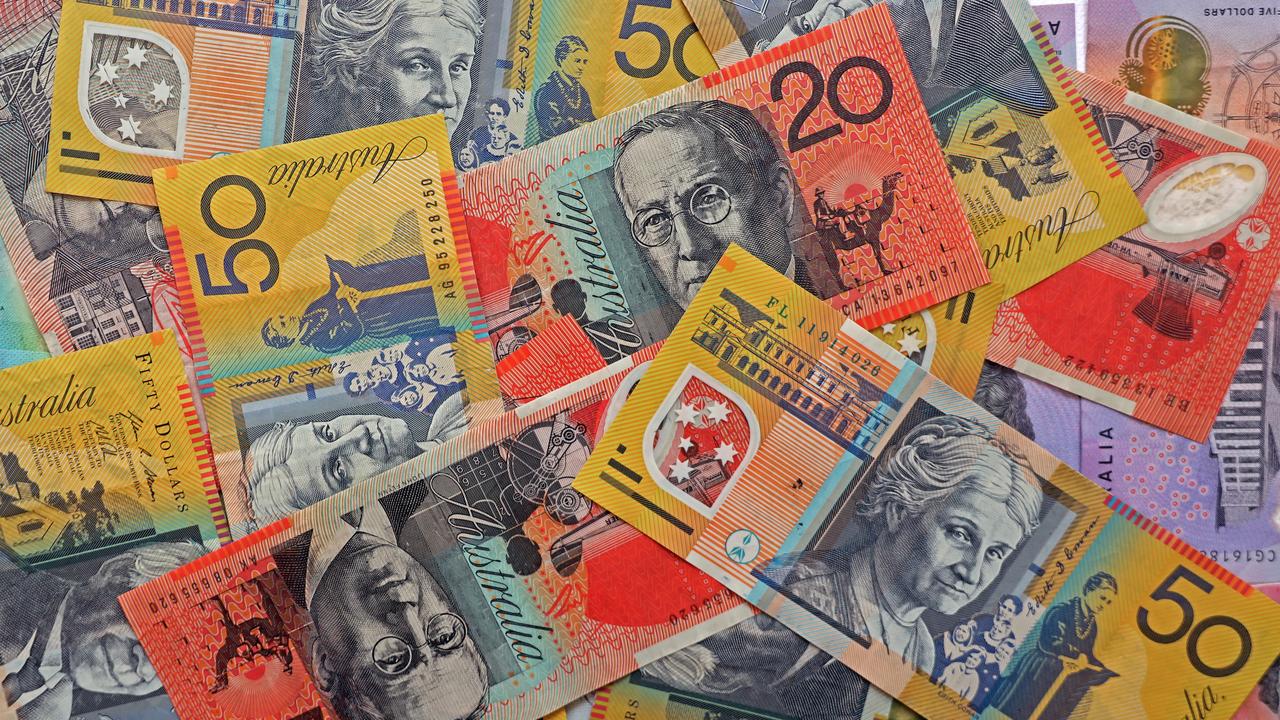‘Not transparent’: The 10 Voice questions undecided referendum voters want answered
Polling shows the Voice is on track to be defeated unless the ‘Yes’ campaign wins over undecided voters. They have plenty of unanswered questions.
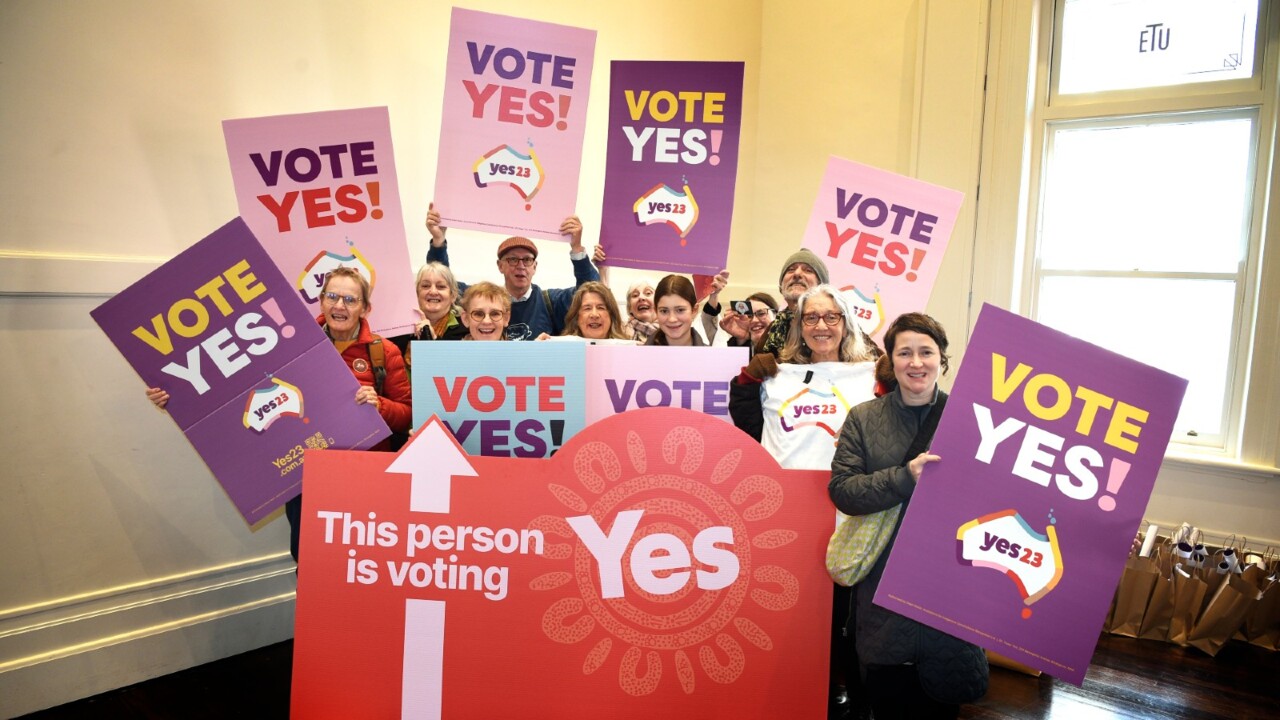
News
Don't miss out on the headlines from News. Followed categories will be added to My News.
The Voice referendum is on track to be defeated, with polling showing support has plunged to 38 per cent and the government conceding many Australians remain confused.
A YouGov poll conducted at the start of October found 53 per cent of people plan to vote no, compared to the 38 per cent in favour.
Successive polling since the referendum date was announced in early September shows dwindling support, but in a recent appearance on Sunrise, Environment Minister Tanya Plibersek insisted “there are still a lot of people who are undecided”.
“We have time to convince those people to vote yes,” Ms Plibersek said.
Readers of news.com.au were asked to submit the unanswered questions about the Voice that might sway their decision, with more than 2000 people taking part.
1. Why can’t the 11 elected Indigenous politicians provide advice on Indigenous matters?
There are an estimated 984,000 First Nations people living in Australia, representing 3.8 per cent of the population.
Almost five per cent of Australia’s federal parliamentarians are Indigenous, with 11 elected across the House of Representatives and the Senate.
“It’s great there is strong Indigenous representation in parliament, however this does not guarantee Indigenous communities across the country a proper say in laws and policies made about them,” Shireen Morris, a constitutional lawyer and senior lecturer at Macquarie University, argued.
“That’s why Indigenous Australians through the Uluru Statement asked for a constitutionally guaranteed Voice in their affairs.”
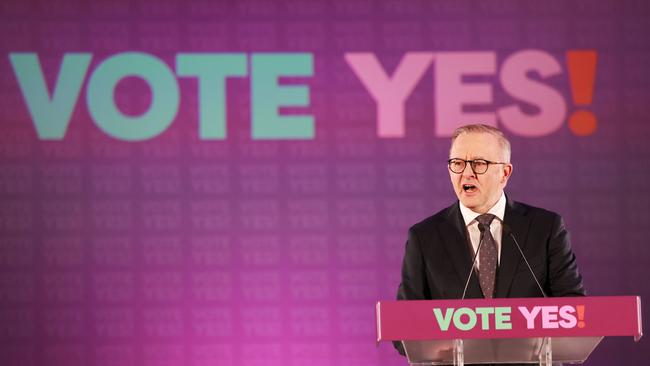
In an article for The Conversation, Ms Morris said Indigenous politicians “fulfil a different role” and represent all people in their electorates.
“The job of politicians is to represent Australian voters and make laws and policies – the role of the Indigenous Voice is very different,” she wrote.
“The Voice would sit outside parliament and government and would not make laws. Rather, it would enable Indigenous communities to provide advice on, and partner in, the development of laws and policies made about them.
“This would enable Indigenous communities to be heard in their own affairs.”
Indigenous politicians do not always agree with Indigenous communities, she added, given their positions are often “constrained and informed by electoral considerations and party affiliations”.
2. Why are so many First Nations people voting no?
Not all Indigenous Australians support the Voice.
Two of the most prominent ‘no’ campaigners are Nyunggai Warren Mundine and Jacinta Nampijinpa Price.
However, Prime Minister Anthony Albanese has repeatedly claimed the “vast majority” of First Nations people are in favour.
Only a handful of polls have been conducted on the issue.
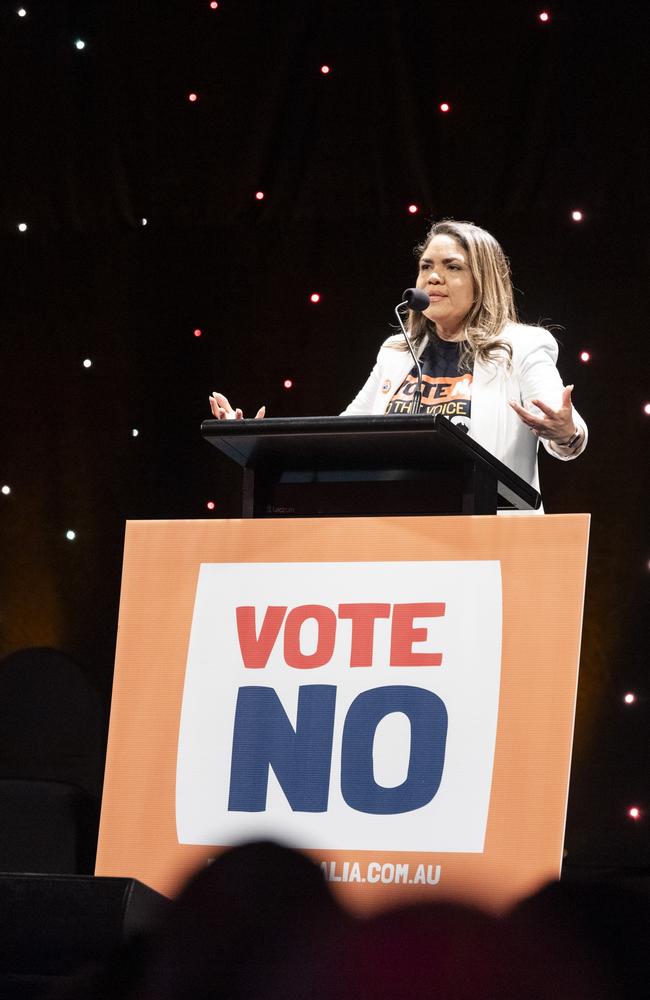
One of them, a YouGov poll released in May, showed some 83 per cent of Indigenous Australians plan to vote in favour of the Voice.
The proposal for the Voice itself comes from the Uluru Statement from the Heart – a document endorsed by 250 Indigenous delegates in mid-2017.
“This consensus followed a groundbreaking process First Nations from across Australia through 12 deliberative dialogues,” the Uluru Dialogue explained.
“Joining each dialogue were a representative sample of approximately 100 Indigenous people drawn from local traditional owners, Indigenous community-based organisations and Indigenous leaders.
“These regional dialogues selected their own representatives to attend the First Nations Constitutional Convention at Uluru. At the Convention, and by an overwhelming consensus, more than 250 delegates adopted the Uluru Statement.”
3. Why isn’t Labor being transparent with the detail of the Voice?
There is a prevailing perception that the government has not provided enough detail about how the Voice will work.
Opponents have seized on this sentiment to paint Labor and Mr Albanese as either unprepared or deliberately deceptive, with the No camp declaring: “If you don’t know, vote no.”
“These concerns fundamentally misunderstand how constitutions work,” Associate Professor William Partlett from The University of Melbourne’s Law School argued in an article for The Conversation.
“Constitutions are not detailed documents that anticipate every possible circumstance. On the contrary, they are by nature short and incomplete documents. They inherently contain large gaps.”
Constitutionally enshrined institutions are primarily shaped by legislation passed by parliament and the proposal for the Voice is similar to other clauses.
For example, the Constitution has little detail about the High Court and how it should operate, not even detailing how many justices should sit on the court.
The relevant part of the Constitution reads: “The High Court shall consist of a Chief Justice, and so many other justices, not less than two, as the parliament prescribes.”
The Judiciary Act 1903 set the High Court’s powers and jurisdiction and there have been several amendments passed since that have seen it further evolve.
“For instance, the court has increased in size from three to seven justices in order to handle its increasing case load, which many in the early 20th century thought would be very light,” Associate Professor Partlett said.
4. There are already a number of Indigenous advisory bodies, grassroots initiatives and billions of taxpayer dollars that address Indigenous disadvantage. How will a Voice enshrined into the constitution achieve better outcomes?
There is not a single national, co-ordinated representative body for First Nations people to provide advice or guidance to parliament.
There are many organisations covering education, health and other matters deal with the provision of services to Indigenous people and communities.
The Voice would offer a constitutionally guaranteed mechanism to Indigenous Australians to speak to governments and parliament about how to practically improve people’s lives.
Research conducted by Professor Marcia Langton and colleagues into the successful response to the Covid-19 pandemic by Aboriginal and Torres Strait Islander communities described it as “a global role model”.
“The [successful] result [was] due to the outstanding Indigenous leadership, that governments at all levels listened to Aboriginal wisdom, and that control was handed to those who knew what to do,” Professor Langton and colleagues wrote in a paper published in the Journal of Paediatrics and Child Health.
“This result is not only evidence for why a Voice enshrined in the Constitution would work, it heralds a new way of working with Aboriginal people in Australia.
“The major difference was that First Nations were acknowledged to be capable of leading this response, were given the power to act and they established effective partnerships with government and non-government services.
“This was a unique moment after decades of failed policies, which were developed for but excluded First Nations in their design and implementation.”
5. Does the Voice open the door to mandatory taxing of non-Indigenous Australians for reparations and land through a ‘pay the rent’ scheme?
Indigenous rights advocate and Yes campaign figure Thomas Mayo said claims like this from the No camp are false and “disappointing”.
“The Voice gives advice, it cannot decide laws or where funding goes, and it cannot take anyone’s backyard or force them to pay the rent,” Mr Mayo said.
“The Voice will focus on health, education and employment. Cut through all that noise and it’s simple – the Voice is an advisory body.”
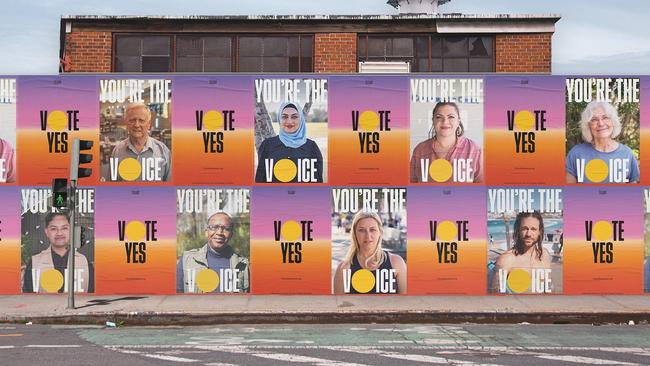
Mr Albanese has described various claims of the Voice being able to impact a range of issues, from the Reserve Bank’s decision on interest rates to private land ownership as “misinformation”.
“Those ideas … are quite frankly absurd – just absurd,” he said.
Formal advice from Stephen Donaghue, Australia’s solicitor-general, concludes the Voice “will not fetter or impede” parliament and is “compatible with the system of representative and responsible government prescribed by the Constitution”.
6. Why has the Voice not been implemented through legislation and trialled before taking Australia to a referendum?
Countless bodies focusing on Indigenous issues have come and gone over the years, and that’s precisely why a constitutionally enshrined body is required, Mr Albanese has argued.
“Lots of money has been put into Indigenous Affairs over the years,” he said in a post on X, formerly Twitter. “But it hasn’t closed the gap on health, education or jobs.
“Instead of leaving it to Canberra, let’s listen to people in the Kimberley or the Pilbara. We’ll save money and get better results by voting Yes.”
Yes campaigner Tanya Hosch agreed, saying being in the Constitution gave the Voice a “permanence” that other bodies have lacked.
“We’ve seen many other bodies come and go,” Ms Hosch said. “They’ve generally not had long enough an opportunity – some have lasted the length of a political cycle or even the length of a political leadership.
“Things have deteriorated significantly. Addressing those matters can’t be done with the flick of a switch. It will take time.”
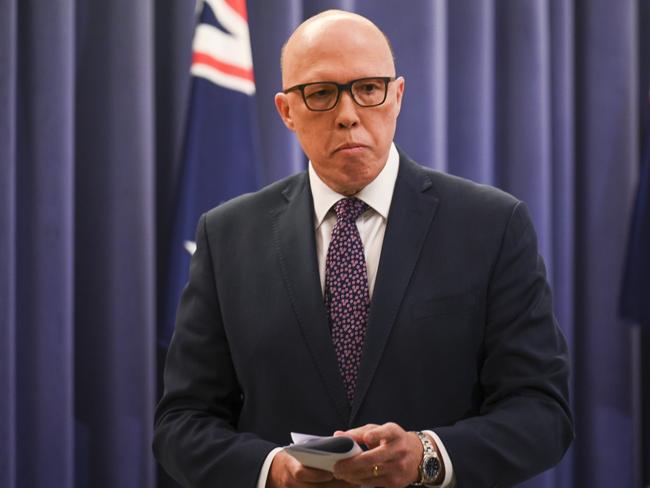
If the referendum is successful next month, Professor Partlett said parliament will then be tasked with drafting and passing legislation that will form the foundation of the Voice.
That law will then be subject to change by future parliaments, he added.
“If there are problems with the way it functions, future parliaments can fix those issues through amending legislation.”
7. Why do we need to enshrine something that is racially divisive into the Constitution?
An argument of the No campaign is that a vote for Yes is a vote for enshrining racism in the country’s most important document.
But Asmi Wood, an Indigenous barrister and the director of the National Centre for Indigenous Studies at The Australian National University, said the Constitution already includes several provisions about race.
Professor Wood said broad “races power” allowances give parliament the ability to make special laws for Aboriginals and Torres Straight Islanders.
“The idea of the Voice giving Indigenous people ‘special privilege’s’ is disingenuous,” he said. “The races power [provision] has already doled out special treatment in the past, mostly painful – the removal of their children and the prevention of them speaking their own languages.”
Once upon a time, the Constitution made reference to “Aboriginal natives” while allowing for their exclusion from democratic institutions and statistical gathering.
“Australia is the only country in the industrialised world with a Constitution allowing politicians to make special detrimental laws for Indigenous people.”
Chin Tan, Australia’s Race Discrimination Commissioner, said the Voice will serve to “recognise and acknowledge the unique rights of Indigenous Australians as the first people of this continent – the oldest continuous culture in the world”.
“Creating an Indigenous Voice to Parliament is not racist or inequitable,” Mr Tan wrote for the Guardian. “On the contrary, it presents an opportunity for Australia to address and overcome racism and discrimination.”
The Australian Human Rights Commission argues: “Indigenous rights are not additional or special rights for Indigenous peoples.”
“Instead, they show what factors should be recognised so that universal human rights standards can be fully realised for Indigenous peoples.
“As an example, [the United Nations Declaration on the Rights of Indigenous Peoples] sets out the importance of recognising Indigenous cultures and languages so that Indigenous peoples can equally enjoy the right to education.
8. If it can only give advice what is the point? How do we know it won’t be ignored?
Independent Indigenous Senator Lidia Thorpe believes the Voice doesn’t go far enough and has described it as “powerless”.
“It’s not going to get down into the weeds and create a more just society for our people,” Senator Thorpe said in an interview with Sky News.
James Supple from the socialist group Solidarity agrees, writing the Voice would have “no real power and be limited to simply offering advice to government”.
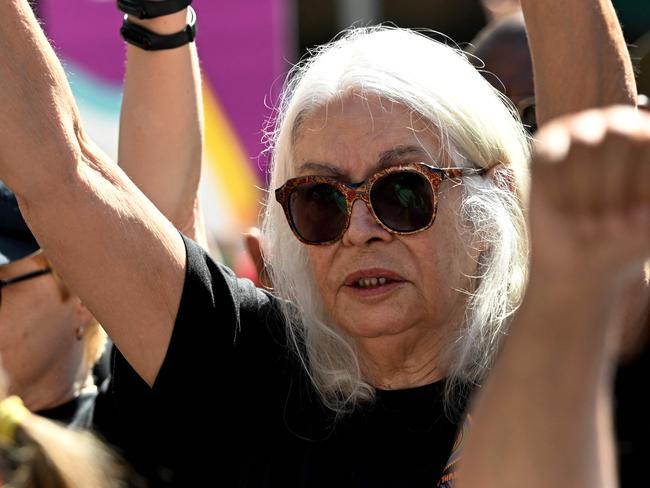
However, the Australian Human Rights Commission argues that the Voice is “an example of substantive legal reform”.
“This is because it would provide for a new constitutionally entrenched legal entity with the function of making representations to the parliament and the Australian Government on matters relating to Aboriginal and Torres Strait Islander peoples,” it said.
“The proposed amendment to the Constitution would also give the parliament a new power to make laws about the composition, functions, powers and procedures of the Voice.”
9. Will there be a treaty making process if a Yes vote is successful and how will this impact non-Indigenous Australians?
The Uluru Dialogue and the Uluru Statement from the Heart called for Treaty, Truth and Voice.
While the referendum deals with Constitutional recognition via a Voice to Parliament, the No campaign argues the original intention of the Uluru Dialogue will spark demands for Treaty.
It would see governments enter binding agreements with First Nations people, which could have far-reaching ramifications.
The reality is, that process is already underway, Mr Mayo said.
The Victorian Government has established a legal framework for Treaty negotiations while the Queensland Parliament this year passed legislation establishing the First Nations Treat Institute.
During the New South Wales election campaign, Labor committed to progressing Treaty discussions. After winning, a special ministry was created and David Harris was appointed Minister for Aboriginal Affairs and Treaty.
“Treaty is simply an agreement between Indigenous people and governments,” Mr Mayo said.
“Debate now goes to this fearmongering, trying to lead Australians to believe that The Voice could force the terms of a treaty. It could be all these scary things that take something away from people.
“The reality is that a treaty is an agreement and no parliament is going to agree to something that upsets Australians.”
10. How can the Voice be representative of all Indigenous communities across Australia?
In the event the Voice gets up, the PM said he will establish a bipartisan Parliamentary Committee “with co-chairs from Labor and the Coalition to oversee the development of legislation for the Voice advisory group”.
This legislation is yet to be drafted, and so there are unknowns about how many people will be part of the Voice, how they will be chosen, where they come from, the length of their terms, and so on.
However, a report prepared for the government proposing the design of the Voice, recommends it have 24 members – two from each state and territory and the Torres Strait, with a further five representing remote areas specifically. The Voice would be gender balanced.
Members would be appointed by communities, not elected, and sit four-year terms.
Ensuring the Voice is representative of all First Nations people will be a challenging task.
As the Australian Human Rights Commission details: “There are over 250 unique Indigenous nations and hundreds of thousands of individuals, with a wide range of views.
“The principles of the Voice include that its members will be ’selected by Aboriginal and Torres Strait Islander communities, not appointed by the executive government’.”
Originally published as ‘Not transparent’: The 10 Voice questions undecided referendum voters want answered



